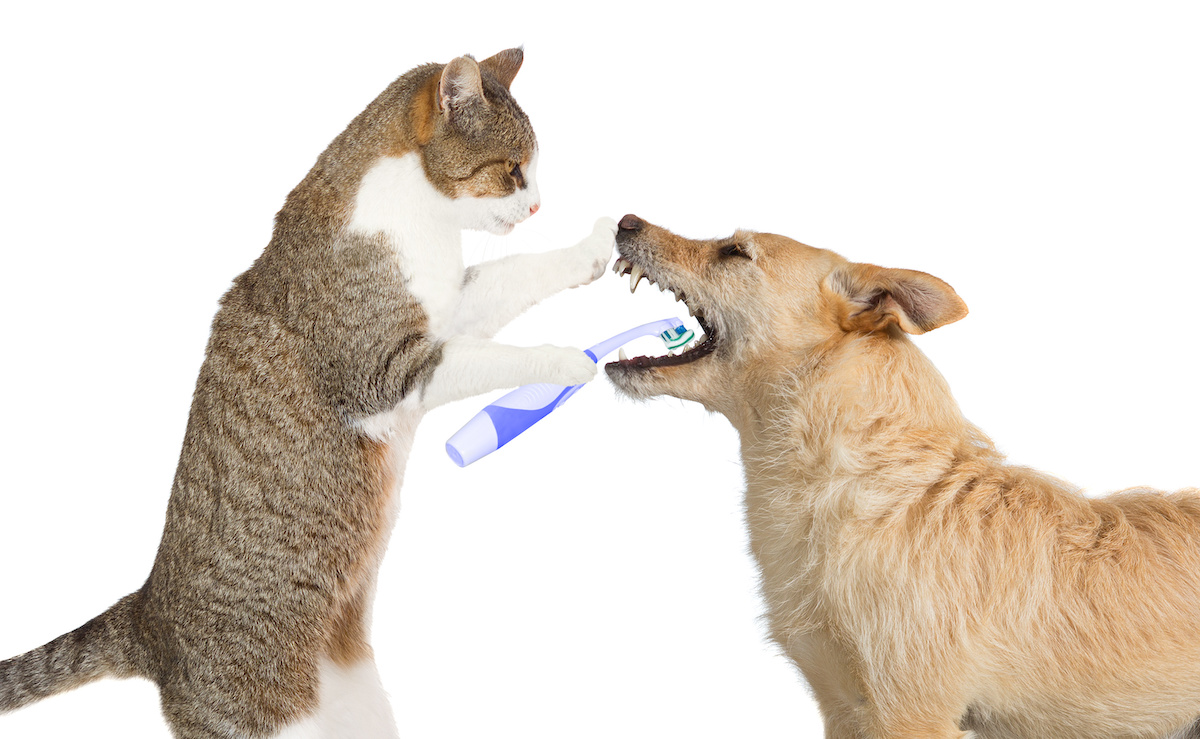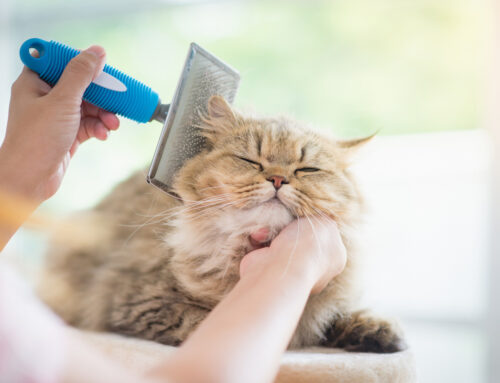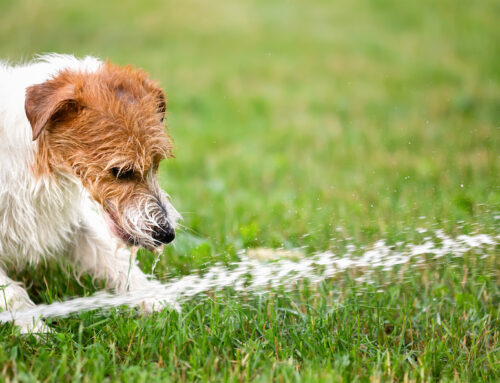The health of your teeth and gums is more important to our overall health than we like to think. Bad breathe can be quite the dealbreaker for some pet owners when cuddling with their pets. Dental diseases in cats and dogs can be very common and if left untreated, very dangerous. If left untreated, poor dental health can lead to issues like heart disease or kidney failure. Just like in humans, poor dental health can be directly correlated with poor overall health. If you find yourself on the couch, wanting to give your pet a breath mint, then you might need to consider more serious options. Contrary to popular belief, “doggy breath” is not normal.
What is Dental Disease?
Starting early in their life, most cats and dogs have a dental disease to some degree by the age of 3. Dental disease can include a build-up of plaque, bacteria, and tartar on the teeth and trapped below the gumline. The early signs are easy to spot and include yellow staining on teeth, bad breath, and red or swollen gums. If left untreated, the bacteria can get absorbed into the bloodstream and pose a serious threat to major organs. This is a painful condition for pets and if discovered in later stages, your pet has already experienced serious chronic pain from infected and inflamed gums.
Diagnosing and Treating
If you notice your pet being more lethargic, more irritable or having less of an appetite, it is time for a dental exam. An effective way for your veterinarian to check your pet’s teeth and gums thoroughly is by use of an x-ray. At first glance, they might not see an issue, but an x-ray allows them to take a closer look and see below the surface.
One of the biggest concerns with dental treatments and exams in pets is the use of anesthesia. Anesthesia is a safe and helpful tool that can greatly relieve a lot of the stress from your pet. Refusing the use of anesthesia can make the experience terrifying and dangerous for your pet. Without anesthesia, it is nearly impossible to safely and effectively clean your pet’s teeth. One of the most important parts of treatment is removing bacteria below the gumline. While it may not be as effective for the aesthetics of the teeth, it can have the biggest impact on health. Preventing teeth from rotting and bacteria from effecting other major organs, are only a few of the benefits.
Preventing Dental Disease
Just like humans, regular dental exams and cleanings are important to maintain proper dental health in your pets. Homecare is also an essential aspect of cleaning for your pet. Brushing your pet’s teeth every day is a good habit to get into and can prevent bigger, more serious procedures. Be sure to use pet-safe toothpaste when brushing your pet’s teeth. Never use human toothpaste on your pet – it contains ingredients that are toxic to pets. If you can’t brush their teeth as often as you’d like, there are also treats and toys designed to help with their oral hygiene. The Veterinary Oral Health Council (VOHC) provides a list of guidelines for dental care for pets.
Talk to Your Vet
At Animal Care Center, your pet’s well-being is our priority. Dental health is important and we are here to help with any questions and treatment needs you may have. If your pet has particularly smell breath or is due for a check-up, we are available to help. A healthy pet is a happy pet. Call or contact us today to keep their mouth fresh!






